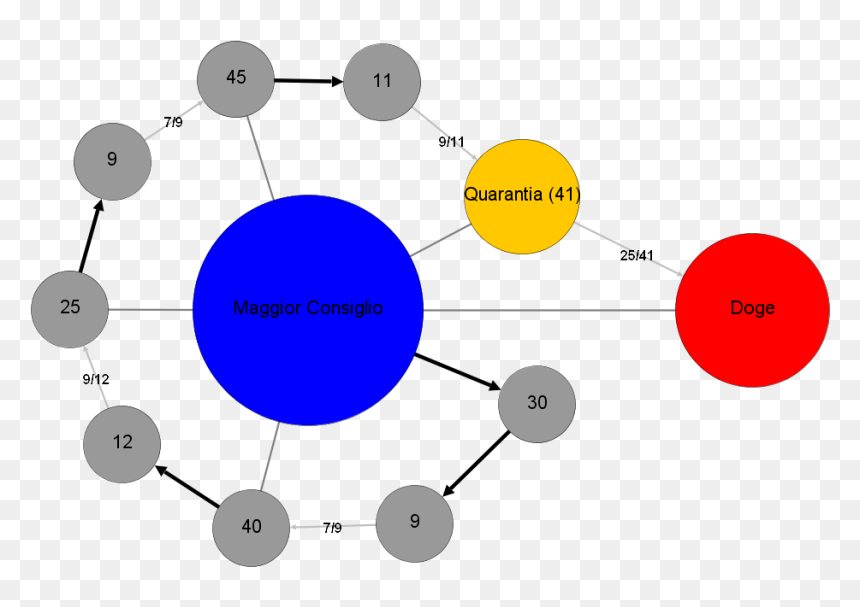The Complicated Business of Electing a Doge
“Whenever the time came to elect a new doge of Venice, an official went to pray in St. Mark’s Basilica, grabbed the first boy he could find in the piazza, and took him back to the ducal palace. The boy’s job was to draw lots to choose an electoral college from the members of Venice’s grand families, which was the first step in a performance that has been called tortuous, ridiculous, and profound. Here is how it went, more or less unchanged, for five hundred years, from 1268 until the end of the Venetian Republic.
Thirty electors were chosen by lot, and then a second lottery reduced them to nine, who nominated forty candidates in all, each of whom had to be approved by at least seven electors in order to pass to the next stage. The forty were pruned by lot to twelve, who nominated a total of twenty-five, who needed at least nine nominations each. The twenty-five were culled to nine, who picked an electoral college of forty-five, each with at least seven nominations. The forty-five became eleven, who chose a final college of forty-one. Each member proposed one candidate, all of whom were discussed and, if necessary, examined in person, whereupon each elector cast a vote for every candidate of whom he approved. The candidate with the most approvals was the winner, provided he had been endorsed by at least twenty-five of the forty-one.”
Thirty members of the Great Council, chosen by lot, were reduced by lot to nine; the nine chose forty and the forty were reduced by lot to twelve, who chose twenty-five. The twenty-five were reduced by lot to nine, and the nine elected forty-five. The forty-five were reduced by lot to eleven, and the eleven chose the forty-one who elected the doge. Election required at least twenty-five votes out of forty-one.
“Sorting process for the election of the Doge of Venice,” Jacob von Sandrart, 1687.
Diagram of Ducal Election
Protocol for election of Doge of Venice in 1730, print, Italy, 18th century
The rounds of electing the doge.
Diagram of Ducal Election.
Gabriel Bella, The Doge’s Coronation, 18th c.
The doge is carried through the square after his coronation throwing gold coins to the crowd, a tradition originated by Doge Ziani in 1172.
(Francesco Guardi, 18th c.)



